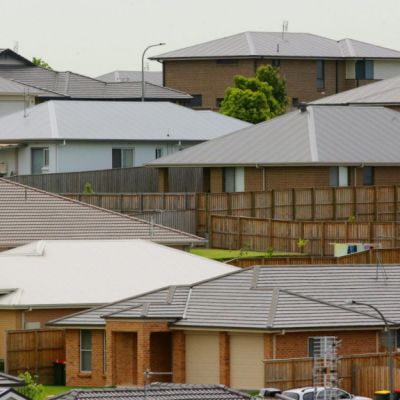What your property manager should be doing for you
A property manager is responsible for just three major things: finding you a tenant, collecting the cash and carrying out regular inspections. Right?
Wrong, says Emma Gordon, who runs the property management division at Harcourts Victoria. She says property managers – or at least the good ones – now carry out tasks far beyond that.
“The key is a property manager now needs to be a risk manager, to educate the landlord on how to reduce the risk of being a landlord,” says Ms Gordon.
For starters, there’s building insurance to worry about, plus owners corporation rules, smoke alarms, the servicing of gas appliances and window blind and pool fencing legislation.
“A lot of property managers just don’t have any knowledge on, say, if tenants go and put a pop-up pool in the backyard and someone drowns,” she says. “There are just so many areas now where a property manager has to have knowledge.”
The best property managers will also help their client create wealth through property management, says Ms Gordon.
That could be done by talking to a landlord about their five or 10-year property plan, by recommending tax depreciation schedules, or putting them in touch with mortgage brokers.
Property managers should also be monitoring the market and suggesting rental increases as often as the market permits, says Ms Gordon. They might also advise on renovations that could help an owner achieve higher rents.
Of course, it goes both ways, and a property manager should also be looking after the tenants, says Ms Gordon. “If you’re not looking after your tenant then in turn you’re not going to look after your property.”
Amy Evans, a senior property manager at Release Property Management, says maintenance is another huge area of responsibility for property managers.
“It’s not just reactive – we try to be proactive,” she says.
For instance, if she notices the silicone needs replacing in a shower, Ms Evans will suggest her landlords get it fixed pronto.
“It’s getting that stuff done so you don’t have water damage coming up elsewhere and it causes more inconvenience and massive costs.”
Ms Evans believes it’s also about using experience and knowledge to educate her landlords.
For instance, she is dealing with a case where the landlord, who was planning to sell their property, gave notice to the tenant.
But in the meantime, the landlord’s personal circumstances changed and they decided not to put the place on the market after all.
“If they (the tenant) finds we’re re-letting the property, they could come at the landlord for compensation claims,” she said. “Part of my role as a property manager is to say ‘this is something you need to be conscious of’.”
At the time of writing, Ms Evans had applied to the Victorian Civil and Administrative Tribunal for an exemption to the rules.
Property managers are also usually the ones responsible for having the awkward conversations with tenants – for example, when their cleaning is not up to scratch.
“I always give cleaning tips because that’s the polite way to have a discussion with them about cleaning,” says Ms Evans.
Real Estate Institute of Australia president Malcolm Gunning says a property manager should help take the emotion out of your investment.
A major part of the job is not just collecting the rent, but also acting as a mediator, he says.
Aside from all this, an excellent property manager will regularly give you an idea of what your property’s worth (both in terms of rental income and if you decide to sell), and will know how satisfied your tenant is.
If you can find the perfect property manager, hang on to them tightly.
“A good property manager is like gold,” says Mr Gunning.
We recommend
We thought you might like
States
Capital Cities
Capital Cities - Rentals
Popular Areas
Allhomes
More










